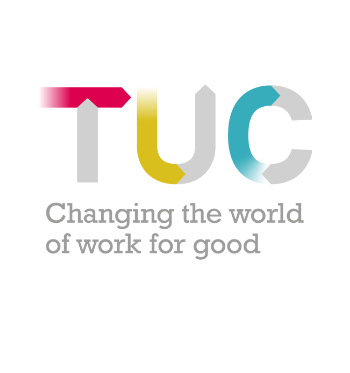
A tsunami of work-related stress threatens to engulf working people
The new health and safety demon is work-related stress and unions are meeting it head-on.
Today is National Stress Awareness Day. It’s an opportunity to think about the issue of work-related stress and its underlying causes, how we can help individual workers and businesses deal with it, and the collective benefit to society of getting this right.
We all know what it is liked to be stressed at work. There’s nothing wrong with being busy, having deadlines to meet, or working to meet targets.
What is wrong is for people to feel overwhelmed, crushed or even made ill by work-related stress.
The Health and Safety Executive (HSE) defines harmful work-related stress as ‘the adverse reaction people have to excessive pressures or other types of demand placed on them’.
And the official figures are horrendous and getting worse by the year.
According to HSE’s latest statistics, in the UK in 2018/19:
- 602,000 workers were suffering from work-related stress, anxiety or depression,
- 246,000 workers suffered a new case of work-related stress, anxiety or depression,
- Work-related stress, anxiety and depression was the cause of 44% of all work-related ill health,
- 12.8 million working days were lost due to work-related stress, anxiety or depression,
- The incidence of work-related stress, anxiety or depression is significantly up on 2010.
The HSE has usefully defined a set of six management standards that employers can use to help them meet the legal duty they have to ‘protect their members of staff, at all times’.
We can use these standards to rank the root causes of harmful work-related stress as:
- excessive workload
- lack of support due to poor or bad management
- bullying, threats or violence by colleagues, management or customers
- insecurity caused by change at work, such as redundancies or introduction of new technology
- a worker’s job role not being understood and their status at work being lost
- and a lack of control or feeling of helplessness.
And it’s clear that by far the major cause of harmful work-related stress and ill-health is excessive workloads.
A terrible decade for UK workers
On top of these factors workers are struggling with a lost decade of pay growth, with real pay today still lower today than in 2009.
Then there’s the fact that proportion of annual national income paid out in wages (rather than in profits and dividends) has fallen to historically low levels.
Those grim facts conceal an even nastier trend because that shrinking pay pot includes the pay of the very highly paid, who have seen their pay increase immensely.
Then there are the 3.8 million workers – more than 10% of all workers in the UK – who are in precarious employment such as zero-hours contracts, bogus self-employment, and agency work.
So it’s no surprise that a tsunami in work-related stress has hit working people over the last decade.
The TUC’s most recent survey of health and safety reps found that 69% reported it as a problem in their workplace – the most frequent issue identified.
What are unions doing to help?
When unions have a strong role in the workplace and a dialogue with the employer, things can improve.
Health and safety reps and health and safety committees engage with employers about stress at work.
Reps also help raise awareness by promoting events like ‘World Stress Day’ and offering ‘mental health first aid’ training.
They ensure that stress hazards are included in risk assessments, that all managers are trained, that an employer has a clear policy about preventing and dealing with work-related stress and that the grievance procedure process supports workers who are being harmed.
Overall, unionised workplaces are more productive, safer and healthier – and workers are better paid on average too.
The bad news is that unions are limited in what they can do to protect the safety, health and welfare of workers in a non-unionised workplaces.
We can highlight the terrible work-related stress statistics and campaign for a ban on zero-hours contracts.
We also succeeded in persuading the HSE to change its investigation criteria to include collective cases of work-related stress for the first time.
But all to often in non-union workplaces, the ‘worker’s voice’ is sadly weak or ignored.
What can workers can do?
Any worker who thinks that excessive work-related stress is making them ill should visit the TUC website and see their GP. But do not suffer in silence.
Get smart, defend yourself, protect yourself, respect yourself, and join a union. To get advice on which union to join go to www.tuc.org.uk/join-union
And if you are in a union already, organise in the workplace to win great jobs for everyone. More information about our campaign.
Stay Updated
Want to hear about our latest news and blogs?
Sign up now to get it straight to your inbox

